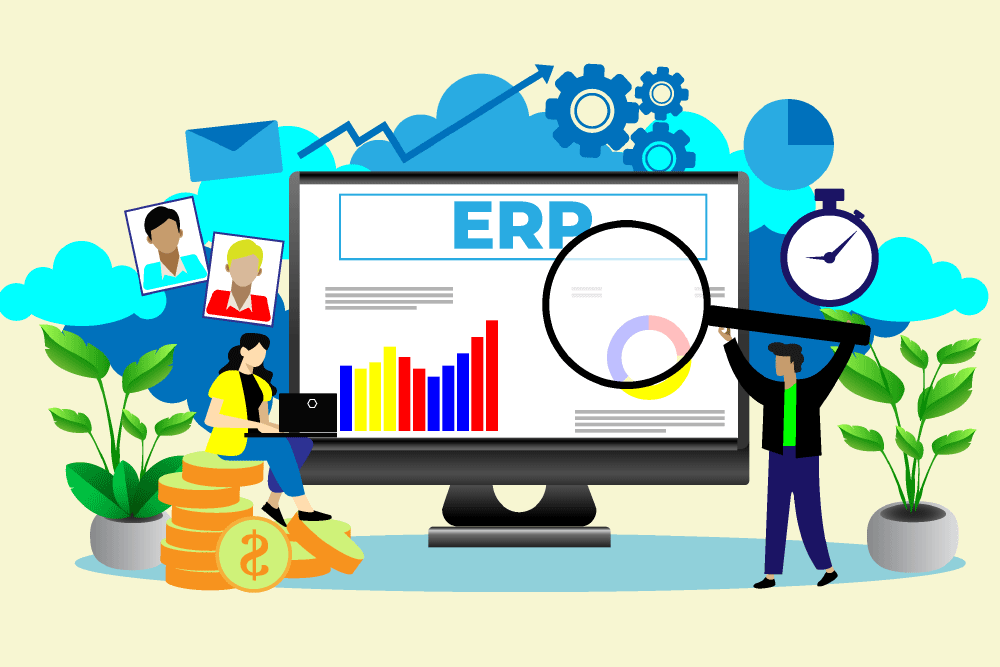Sustainability has become a central focus for businesses across the globe. As companies strive to reduce their environmental impact, implementing sustainable practices in inventory management is crucial. Cloud erp (enterprise resource planning) solutions offer advanced tools for better resource management, making it easier for businesses to adopt eco-friendly practices. This blog post explores how businesses can leverage cloud erp solutions to implement sustainable practices in inventory management, featuring lesser-known benefits and actionable strategies.
The importance of sustainable inventory management
Sustainable inventory management involves optimizing resources to minimize waste, reduce carbon footprints, and promote eco-friendly operations. The benefits of such practices include:
Environmental protection: reducing waste and emissions helps preserve the environment.
Cost savings: efficient resource management reduces operational costs.
Enhanced reputation: consumers prefer brands that prioritize sustainability, boosting customer loyalty and brand image.
According to a report by nielsen, 81% of global respondents feel strongly that companies should help improve the environment.
Leveraging cloud erp for sustainable inventory management
Cloud erp solutions provide a centralized platform for managing all aspects of inventory, offering numerous features that support sustainable practices:
1. Real-time inventory monitoring:
Cloud erp systems offer real-time visibility into inventory levels, helping businesses maintain optimal stock levels and avoid overstocking or stockouts. This reduces waste and ensures resources are used efficiently.
Mckinsey reports that optimizing inventory levels can reduce waste by 10-20%.
Actionable tip:
Use the real-time monitoring features of your cloud erp to track inventory levels continuously. Set automated alerts for reorder points to ensure timely restocking without overstocking.
2. Improved demand forecasting:
Advanced analytics in cloud erp systems enable more accurate demand forecasting. By analyzing historical data, market trends, and seasonality, businesses can predict demand more accurately and adjust their inventory accordingly.
Stat insight:
According to the institute of business forecasting, companies that use advanced demand forecasting techniques can reduce inventory costs by 10-15%.
Actionable tip:
Leverage the forecasting tools in your cloud erp to create accurate demand forecasts. Regularly update these forecasts based on new data to maintain their accuracy.
3. Efficient supply chain management:
Cloud erp solutions enhance supply chain transparency and efficiency. By integrating suppliers, manufacturers, and distributors into a single platform, businesses can optimize logistics, reduce transportation emissions, and ensure timely deliveries.
Stat insight:
The world economic forum reports that digital supply chain technologies can reduce logistics-related emissions by 20-30%.
Actionable tip:
Use the supply chain management features of your cloud erp to monitor and optimize the flow of goods. Implement just-in-time (jit) inventory practices to minimize waste and reduce storage costs.
4. Sustainable sourcing and supplier collaboration:
Cloud erp systems facilitate better collaboration with suppliers, enabling businesses to source materials and products sustainably. This helps ensure that suppliers adhere to eco-friendly practices and meet sustainability standards.
Stat insight:
The carbon trust found that sustainable sourcing and supplier collaboration can reduce a business’s carbon footprint by 10-15%.
Actionable tip:
Assess and monitor your suppliers’ sustainability practices using the supplier management tools in your cloud erp. Establish criteria for sustainable sourcing and work with suppliers to meet these standards.
5. Enhanced data analytics and reporting:
Cloud erp solutions provide robust analytics and reporting tools that offer insights into inventory performance, resource usage, and environmental impact. These insights can help businesses identify areas for improvement and implement more sustainable practices.
Actionable tip:
Set up custom reports to track key sustainability metrics, such as waste reduction, energy consumption, and carbon footprint. Use this data to inform decision-making and drive continuous improvement.
Lesser-known benefits of cloud erp in sustainable inventory management
1. Paperless operations:
Cloud erp systems support digital documentation and workflows, significantly reducing the need for paper-based processes. This transition not only saves trees but also decreases the environmental impact of printing and paper waste.
Stat insight:
The environmental paper network reports that digital documentation can reduce paper consumption by 50-70%.
Actionable tip:
Adopt digital workflows and documentation practices within your cloud erp. Encourage electronic communication and document storage to minimize paper use.
2. Circular economy support:
Cloud erp systems can facilitate circular economy practices, such as recycling, refurbishing, and remanufacturing. By tracking products throughout their lifecycle, businesses can recover valuable materials and reduce waste.
Actionable tip:
Implement workflows in your cloud erp to manage product returns, refurbishing, and recycling processes. Use tracking capabilities to ensure materials are recovered and reused efficiently.
3. Energy efficiency monitoring:
Some cloud erp solutions offer features for monitoring and managing energy usage. This allows businesses to track their energy consumption and implement strategies to improve efficiency and reduce their carbon footprint.
Actionable tip:
Integrate energy monitoring tools with your cloud erp to track energy usage in real-time. Identify inefficiencies and take corrective actions to reduce energy consumption.
4. Regulatory compliance:
Cloud erp systems help businesses stay compliant with environmental regulations by automating reporting and providing audit trails. This reduces the risk of non-compliance and associated penalties.
Actionable tip:
Use the compliance management features of your cloud erp to automate environmental reporting. Ensure that your practices align with local and international sustainability regulations.
Conclusion
Implementing sustainable practices in inventory management is essential for reducing environmental impact and improving business efficiency. Cloud erp solutions provide powerful tools for optimizing inventory levels, enhancing supply chain efficiency, improving resource utilization, and promoting sustainable sourcing.
By leveraging these capabilities, businesses can achieve significant sustainability benefits, including reduced waste, lower emissions, and improved resource efficiency. Real-world examples demonstrate the transformative impact of cloud erp on sustainable inventory management, and the lesser-known benefits further highlight the value of these systems.
Investing in cloud erp solutions for sustainable inventory management not only supports environmental responsibility but also drives long-term business success. Embrace these technologies to build a more sustainable future for your business and the planet.


